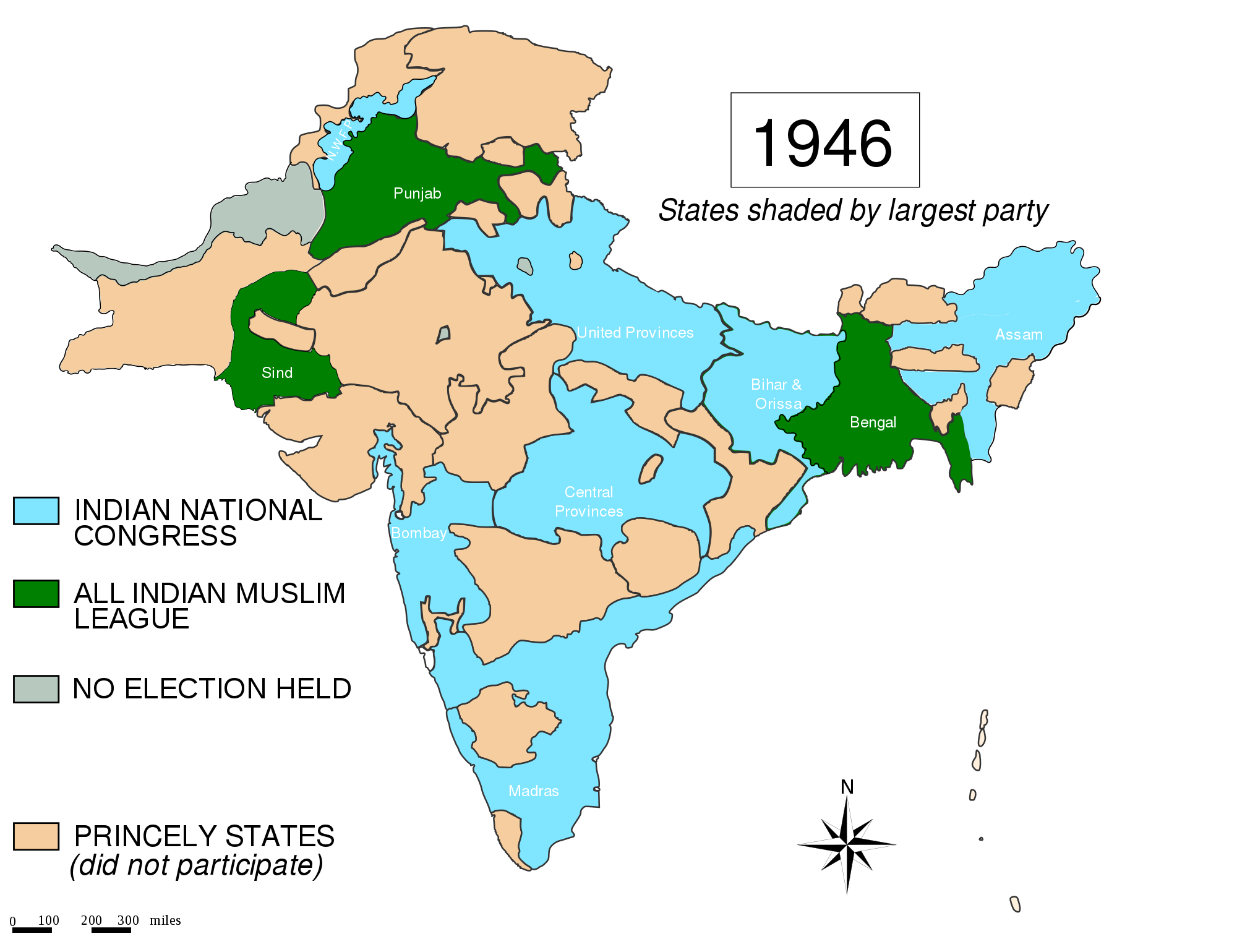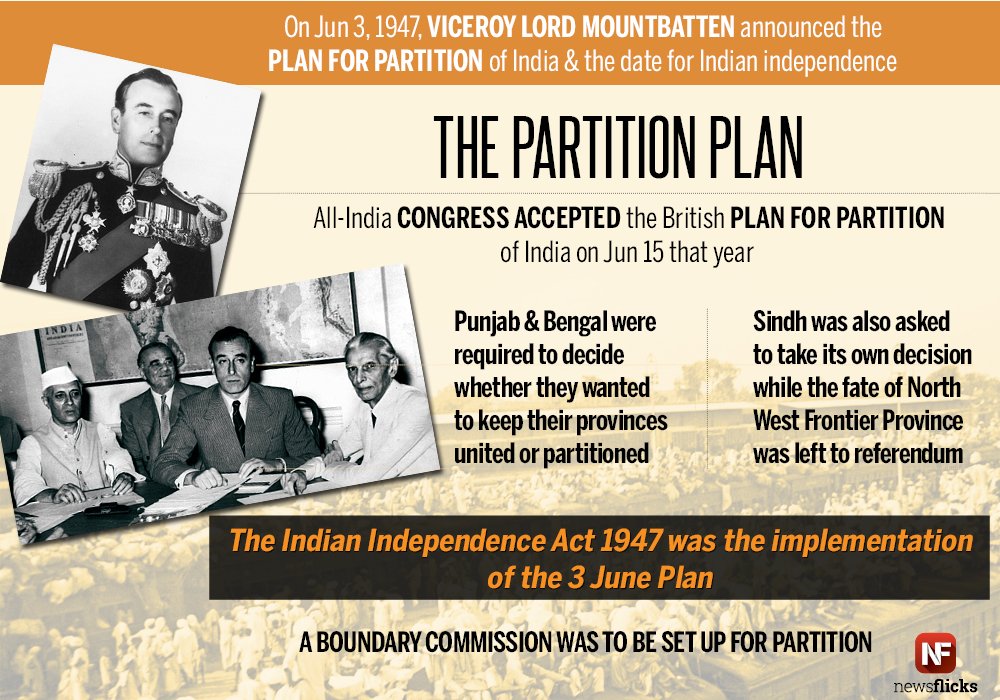Recently I had a discussion with a friend related to Indian partition and Gandhi’s death. The consensus seems there is enough justification for Nathuram Godse’s anger. The percentage of people believe Godse being a martyr is growing from last decade or so, whereas in 1950 only very cult RSS followers believed in Godse argument. But with a string of BJP governments and Hindutva religious spread changed the popularity of the argument. The argument goes like this “ Gandhi could have stopped the partition but he did not stop it as he only wants Nehru to be PM of India. Gandhi/Nehru had a cloud to convince Jinnah and they did not put enough efforts to stop it due to their selfish needs over the country". Gandhi has a magic wand to stop the partition and he did not do it?.
But the argument I want to make is it is the people’s choice. They want the partition, plain, and simple.
Yes India Had Elections before Independence
How many of us know that India has democratic elections in pre-independent India under British. And both Congress and Muslim league participated elections for around 20 years before independence as opposite political parties?. They also ruled provincial governments (Similar to state governments) for few years from 1936-38?. How many of us know elections of 1945/46 are the basis for British came to conclusion for partition.
We all have this magical illusion that on August 14, 1947, night British left India and gave the keys to India and declared Nehru as PM. Even when we buy a house the transfer is a complicated issue where so many government bodies, banks involved to make sure smooth and safe transition happens, So How massive will be a government transition?. It was an amazing story how British transitioned their colonies to the local government bodies with least amount of friction(except the violence in India/Pakistan partition). If you compare to recent political transitions after US invasion in case of Afghanistan or Iraq, the British transitioned half the world in a matter of few years.
How people voted in the pre-independence British India shaped current form of India (Indian history books provides very little details of them partly we hate British and don’t want to credit Indian democracy)
1920 elections
Because British implemented Democratic reforms in their colonies from early 1900’s and implemented democracy elections at state/province level. Part of it British India had reforms started from 1900's and had first provincial elections in the 1920's, that is the same time Gandhi was involved in Indian freedom fight and able to massively connect with people. He asked to boycott the 1920 province elections despite that most of the seats contested elections for representatives and elected their members.
Similarly, the elections were held in 1923 where Mothilal Nehru lead swaraj party which won the majority of seats.all these central Assembly elections (equivalent to Member of Parliament).
1937 Elections

1937 is a significant year in Indian democracy where they are province (state) level elections were held and they also form state-level ministries to run governments. Congress and AIMI (all India Muslim League) and many other local parties participated in the elections, where Indian national Congress won power in 8 provinces and formed the government.This is a new challenge for Congress, as this is the first time they should show the world Indians can self-govern themselves. If they fail, that could impact the freedom struggle and ultimate Indian independence. Congress governments in power for less than three years and they resigned when British unilaterally declared Indians involvement in world war II. In a way, early resignation is a blessing for Congress as they are struggling the govern in various different areas.
With democratic reforms, the “freedom of speech and Media “ is taking a revolution in India where there are multiple newspapers came into existence from religious groups and it became an open season to have religious hatred on the name of freedom of speech. Congress governments could not suppress the hatred. Also, many state government also worked on passing laws like banning cow slaughter and other anti-Muslim issues.
Dalit, labor groups, Muslims all are disappointed with the governance of congress mostly due to not meeting expectations. “Pirpur committee” established to prepare a detailed report of Congress ministry atrocities on Muslims. The report is very damaging to Congress party and the start of Muslim league demand for the separate Muslim state. Before 1936 Provincial governments Muslim league was not that popular even with Muslim even for them independence is important than religious recognition, but that changed significantly after 1937 congress governance issues.
1945/46 Elections

Post world war II, British had general elections for central assemblies (Member of parliament to give a context) in 1945 in this elections out of 102 seats, Congress won 59 and Muslim league won 30 seats. Despite Congress got the majority of seats Muslim league won all Muslim dominant area and seats reserved for Muslim. That’s where Muslim league started raising also as its demand for the independent Muslim state.
1946 provincial (state) level elections, Congress elected a Muslim as a leader (“Abdul Kalam Azad” ) to fight back against Muslim league. Out of 1585 provincial seats, Congress won the majority of 925 and Muslim league is second with 425 seats. The Muslim League finished second, but it had won the overwhelming majority of Muslim seats. It won nearly 1/3 of India, as such it gained the negotiating power to begin partitioning India. This was done as it became evident that a united India would be politically unstable.
Muslim league contested the elections with a slogan for separate Muslim state and they won all Muslim majority provinces whereas Congress was working towards
Both of this elections are basis gave enough negotiation power for Muslim league to demand separate Muslim country. British also took this into consideration as peoples will and worked towards two countries theory.
The Muslim League won a plurality of seats in the Punjab assembly, but not an overall majority, and a coalition government was formed by Congress and the Unionists (another labor union party); This irked Muslim league and they felt it is not a representative government of them and started civil disobedience. These also lead to communal riots which lead to dissolving the government. These communal differences are like an open wound which went thru major ruptures in the partition. This is one of the significant causes of Partition violence where Hindu and Sikh (Akali’s) felt their rights to form a government is taken down by Muslim league.
One more significant thing to consider all the princely colonies never participated in the elections of 1945/47 siting their special status with British. Had the participated in elections the results could be different.
Here are few references to this topic:
http://danasurdanu.blogspot.com/2014/07/1945-1946-elections-who-voted-for.html (More Hindutva version of storytelling where Muslims/Indians never going to be together)
Independent and Partition
Despite all the discussion about the separate countries both Congress and Muslim league never considered the population migration on religious lines. Partly because both parties agree they treat minorities fairly and provide a comfortable living for them. (Not saying they fulfilled their commitment). Part of the division both countries want a fair share of Punjab and Bengal, this was challenge forced to divide these provinces based on the religious distribution. (There is a popular opinion that division of these provinces was one of the causes for increased violence). As discussed earlier Punjab coalition government formation and failure another reason for the violence.
When partition became inevitable the influential and rich people of each reason used a communal vehicle to insight the violence to displace other religion which leads to the bloodbath. Indian had communal riots even in British era before the partitions but it is always local within the region.

Ambedkar’s Book on “Pakistan”

If you read Ambedkar’s book on Pakistan he explains many reasons for partition and state of affairs of India at that time. Here are few which I had not cover earlier
1. The roots of separate Pakistan established long before the partition struggle. In 1919 Khilafat movement where Muslims India protested in support of turkey ottoman empire establishment of the caliphate. The only reason Indian Muslims protested is to turkey is the religious ground where turkey itself had the revolution to eliminate ottoman empire. Gandhi supported this movement as it is against British and also bring Muslims into the freedom struggle. (You can't blame Gandhi too, he want to build a base from all fractions to fight for freedom).
2. If even going back to the history, from 11th century thru 16th century India ruled by various Muslim kings and Muslims enjoyed part of the ruling class and Hindu's predominantly in the working class. British India gave the opportunities to change that equation where Hindu's got educated in English and became part of British government body where Muslims left behind. That left the disparity so big, Muslims felt they might not have enough voice and presence in unified India.
3. One of the major concern with unified India for Muslims having one person one vote without any Muslim reserved districts. But as Congress leaders felt it does not make good democracy to have Muslims have their own elections.
In short, it is a much more complicated matter than people perceive and many times with very limited knowledge.
Would like to know your feedback

Comments
Post a Comment